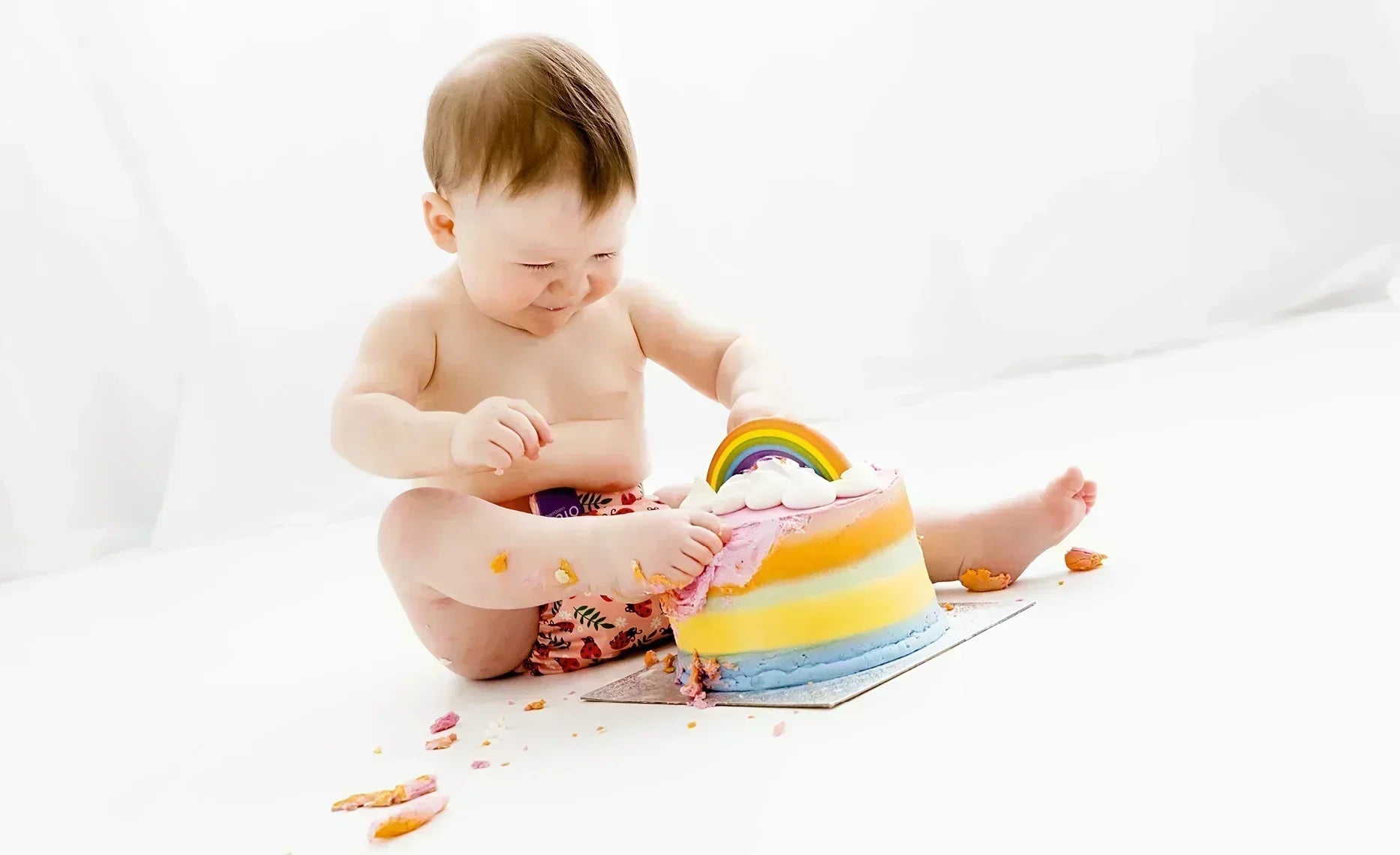Week 24 of Pregnancy | How Big is Your Baby at 24 Weeks?
Share Options
- Bambino Mio
- 28 / 06 / 2023

Inside this Article:
Pregnancy is a time of huge change for you, your body and your life. Our guide will help you through this amazing time, letting you know what to expect at each stage and, most excitingly, what your baby is up to each week.
Your baby is the size of a corn cob
By 24 weeks of pregnancy, your baby is around 21.5cm (8.25in) from crown to rump and 30.5cm from crown to heel. He or she is growing rapidly now and weighs around 665g (1.5lbs).
This rapid growth phase means your baby will gain between 85g (3oz) and 170g (6oz) each week, with some of this gain coming from the deposition of fat under the skin. This fat will help your baby to stay warm after birth.
Baby’s opening their eyes!
Your baby’s eyelids formed and closed over at around 11 weeks but now it’s time for them to open. They started the process of opening at around 20 weeks and by 24 weeks of pregnancy they’ve separated and are taking their final shape.
As well as their eyes, your baby’s ears are getting ready for life on the outside. The inner ear, which controls balance as well as hearing, is developing and your baby may already be responding to sounds.
Your baby’s lungs are also developing fast, with the cells that produce surfactant are developing and growing. Surfactant is a substance that lines the alveoli (1) (tiny air sacs) in the lung to prevent them collapsing and sticking together. By 24 weeks of pregnancy there’s a small amount of surfactant, but your baby’s lungs are still not quite ready for the outside world.
Your 24-week midwife appointment
When you get to your 24th week of pregnancy, you’ll start seeing your midwife more frequently. Your 24-week check up (2) is a chance to listen to your baby’s heartbeat if you want to and your midwife will also check your blood pressure and your urine (for signs of sugar, protein and infection). They’ll also measure the height of your womb and check your baby’s position.
How you’re feeling at 24 weeks of pregnancy
Typical pregnancy symptoms at 24 weeks include Braxton Hicks contractions, general aches and pains, leg cramps and round ligament pains. Pregnancy hormones can cause itchy skin and your bump might start to feel a bit tight and dry - a gentle body lotion is your best friend here, as well as plenty of water to drink.
You might be missing out on some sleep, too. Your growing bump and your energetic baby might be keeping you awake at night, so try a pregnancy pillow to help you get more comfortable in bed.
If it hasn’t made an appearance so far, then heartburn might turn up this week. The squashing of your stomach and the effects of relaxin on your oesophageal sphincter combine to release acid into your oesophagus, which results in heartburn. Heartburn can be very uncomfortable, but you can reduce and relieve the symptoms (3).
Staying healthy at 24 weeks pregnant
If you don’t already sleep on your side, now’s the time to get into the habit. The weight of your baby and bump can start to press on your inferior vena cava (4) - the large vein which returns blood to your heart - if you lie on your back to sleep. A pregnancy pillow can help you to maintain this position as you sleep.
Getting some exercise (5) is still important, especially as it may help you to sleep better at night. Do your pelvic floor exercises (6) as often as you remember - it’s a good idea to do them when you’re doing daily chores like washing up, brushing your teeth or loading up the washing machine.
Make sure you’re keeping to a healthy pregnancy diet and don’t forget to drink lots of water. Keep an eye out for anaemia, as it can be quite common in the second trimester, and tell your midwife if you feel any symptoms of iron-deficiency anaemia (7).
What you need to think about at 24 weeks of pregnancy
At 24 weeks of pregnancy you should start buying baby essentials such as lotions, skin-friendly bath foams and hypoallergenic laundry liquids.
You might also start looking into reusable nappies and wipes around now. There’s an initial outlay involved, but the savings are worth it in the long run.
With just 16 weeks to go, you’re probably thinking about labour and birth so it’s a good time to talk with your midwife about your preferences and to start thinking about a birth plan.
Citations and references
(1) McMaster Children’s Hospital. ‘How Surfactant Helps Your Baby’s Lungs’ 2018. Web. https://www.hamiltonhealthsciences.ca/wp-content/uploads/2019/08/Surfactant-lw.pdf
(2) National Health Service (NHS). ‘Your Pregnancy care. Your Antenatal care.’ 2020. Web. www.nhs.uk/pregnancy/your-pregnancy-care/your-antenatal-care
(3) National Health Service (NHS). ‘Common Symptoms in Pregnancy. Indigestion and Heartburn in Pregnancy.’ 2020. Web. www.nhs.uk/pregnancy/related-conditions/common-symptoms/indigestion-and-heartburn
(4) University of Rochester Medical Center. Health Encyclopedia. “Sleeping Positions During Pregnancy.’ Web. www.urmc.rochester.edu/encyclopedia/content.aspx?contenttypeid=85&contentid=p01238
(5) National Health Service (NHS). Keeping Well in Pregnancy: Exercise in Pregnancy.’ 2023. Web. www.nhs.uk/pregnancy/keeping-well/exercise
(6) National Health Service (NHS). ‘Women’s Health. What Are Pelvic Floor Exercises.’ 2020. Web. www.nhs.uk/common-health-questions/womens-health/what-are-pelvic-floor-exercises
(7) National Health Service (NHS). 'Iron Deficiency Anaemia in Pregnancy and After the Birth of Your Baby.’ 2018. Web. mft.nhs.uk/app/uploads/sites/4/2018/04/Iron-levels-in-pregnancy-and-after-childbirth-January-2018.pdf
Pregnancy by Week, What to Expect







































